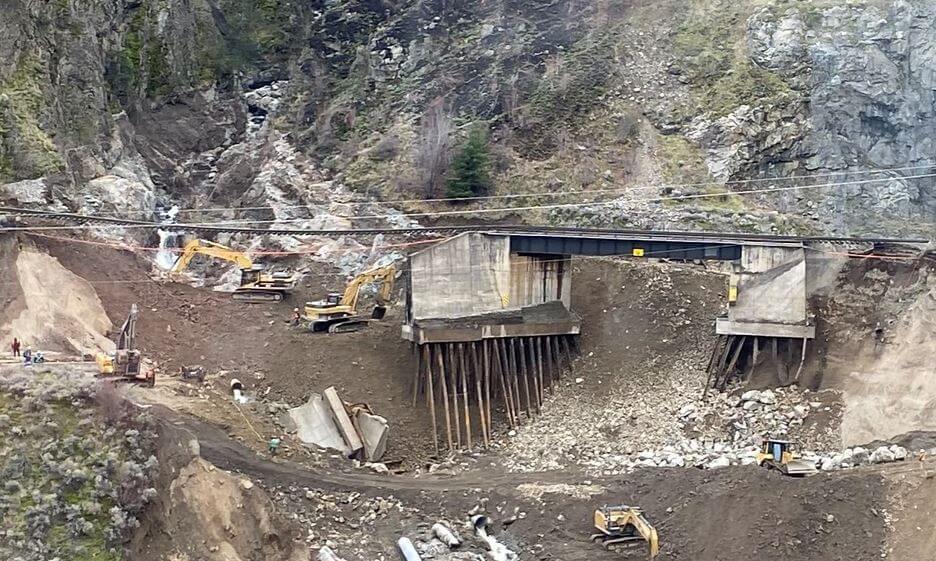Climte disasters are now compounding in Vancouver and British Columbia, Canada as 17,000 people were forced from their homes by flooding late last week. More heavy storms are expected to hit the province’s saturated soil today.
The city of Vancouver, home to 2.5 million people and the country’s busiest port, had much of its infrastructure cut off by landslides that destroyed roads and rail. Barges are now travelling up the Pacific Coast from the US to provide emergency supplies of petrol.
Why were the flooding and landslides so severe? British Columbia’s forested and mountainous terrain was hit by an outrageous heatwave in June and July.
In June, the national temperature record was broken by five degrees when the town of Lytton peaked at half a degree under 50°C. Two days later, Lytton burned to the ground.
With 868,000 hectares of forest burned this past summer and much more weakened by drought, there was nothing to soak up the unseasonably heavy rainfall last week. Towns like Princeton, BC are now facing sub-zero overnight temperatures after several consecutive days without gas, water or power.

The disaster along with perceived failures at COP26 in Glasgow are adding further heat to environmentalist anger. David Suzuki, speaking at Extinction Rebellion event Funeral for the Future, speculated that environmentalists could soon be turning to vigilante action.
“I think it’s going to be threatened by groups that feel government isn’t going anything,” Suzuki said.
Indigenous Sumas Nation on High Ground
One group that made it through relatively well is Canada’s Sumas First Nation. The indigenous group share their name with Sumas Lake, which was drained – or more precisely, pumped out into the Fraser River – in the 1920s.
“It was devastating for our people at the time,” said Sumas Chief Dalton Silver. “It’s been said by past chiefs and by elders, it was more or less like taking away our supermarket, our shopping centre.”
Sumas people took all kinds of seafood from the lake, but when it was drained to make way for farmland they didn’t share any of the benefit.
“They took the lake away and we never got one inch of it.”
So there was a certain poetic justice when the flooding refilled the lake last week. The nearby Sumas settlement was unaffected, as it sits on the lake’s old shoreline.
“Our hearts go out to all our neighbours around us,” said Silver. “But we knew the levels of the lake before.”
Since 2013, the Sumas Nation have been pursuing a compensation claim for the loss of the lake.
Feature image shows lakeside Sumas Prarie in historic painting by James M. Alden
Follow Christian on Twitter for more news updates.